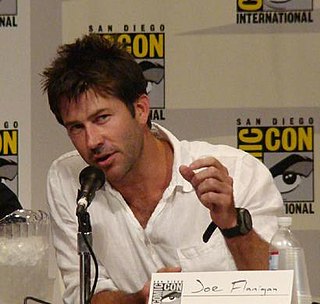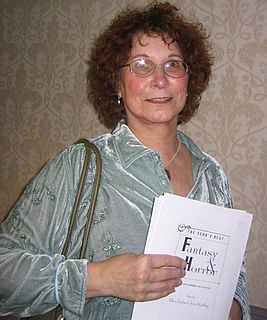A Quote by Cassandra Clare
I would write light entertainment nonfiction pieces during the day, then come home and work on my fantasy fiction. It was very difficult to get out of the one mindset and into another one.
Related Quotes
I write fiction longhand. That's not so much about rejecting technology as being unable to write fiction on a computer for some reason. I don't think I would write it on a typewriter either. I write in a very blind gut instinctive way. It just doesn't feel right. There's a physical connection. And then in nonfiction that's not the case at all. I can't even imagine writing nonfiction by hand.
I believe that science fiction is as profound as you want it to be or it can be very simple entertainment, and I'm all for very simple entertainment. Every now and then we all need to come home, veg-out, watch something and not think too deeply about it. It's what you want it to be. We tend to steer clear of being pedantic; it's entertainment first, otherwise we'd be on a lecture circuit.
I come from a nation where fantastic fiction has a very low status, unless it fits into some very specific categories or is written by already established authors. I don't by any means try to hide what I write, but the way people think in categories here is pretty extreme: it blots out discussing the actual work on its own terms. That's made me loath to talk about my own work in terms of genre, because once you get a label, it sticks and poof go a slew of potential readers and reviewers because eww, fantasy cooties.
'Filk' is the folk music of the science fiction and fantasy community - you get parodies, you get traditional music that's had the words slightly modified, and you'll also get just original works that have been written about science fiction and fantasy works, or with science fiction and fantasy themes.
It was true what Jim said, this wasn’t the end but the beginning. But the wars would end one day and Jim would come then, to the island they would share. One day surely the wars would end, and Jim would come home, if only to lie broken in MacMurrough’s arms, he would come to his island home. And MacMurrough would have it built for him, brick by brick, washed by the rain and the reckless sea. In the living stream they’d swim a season. For maybe it was true that no man is an island: but he believed that two very well might be.
I think, about the distinction between fiction and nonfiction. Fiction is not really about anything: it is what it is. But nonfiction - and you see this particularly with something like the BBC Samuel Johnson Prize for Non-Fiction - nonfiction we define in relation to what it's about. So, Stalingrad by Antony Beevor. It's "about" Stalingrad. Or, here's a book by Claire Tomalin: it's "about" Charles Dickens.

































